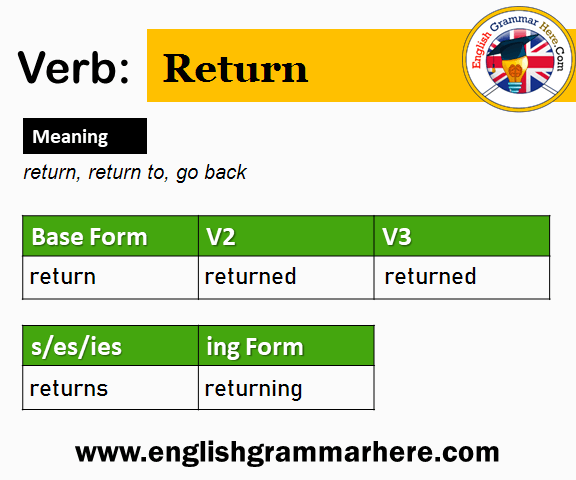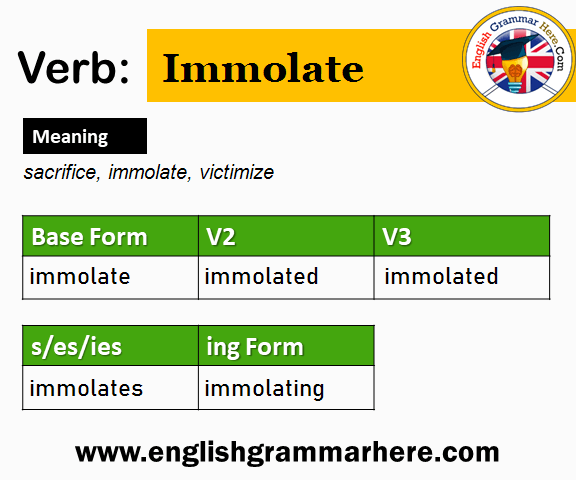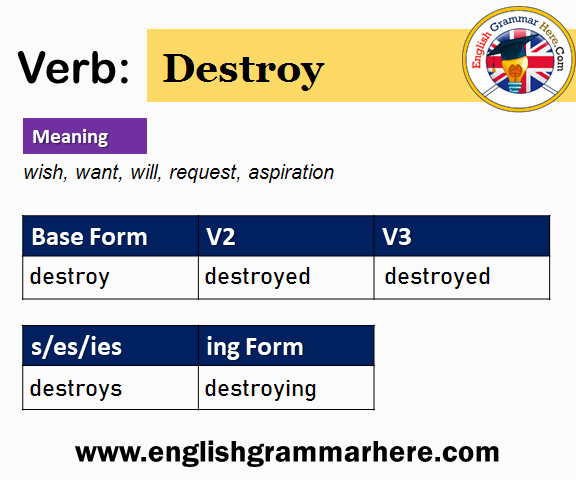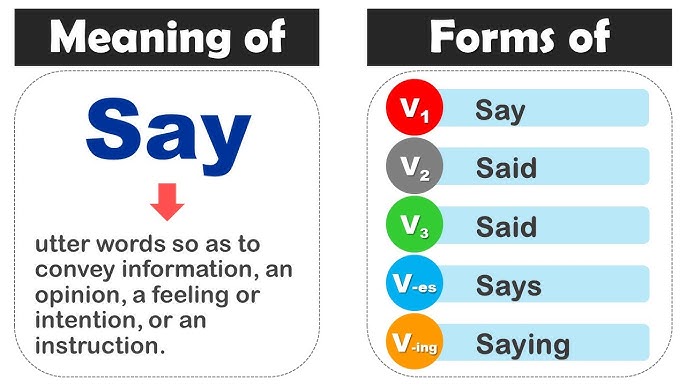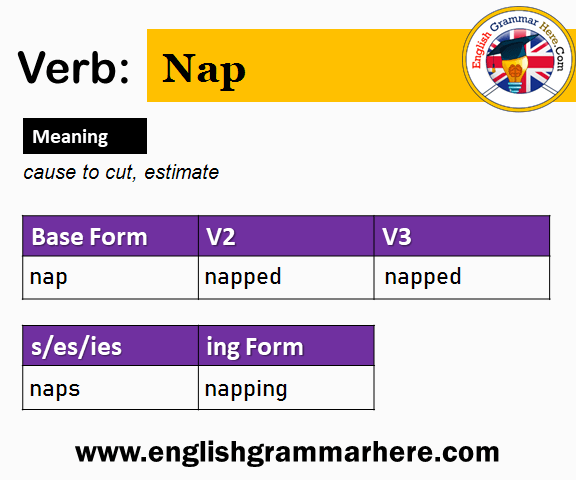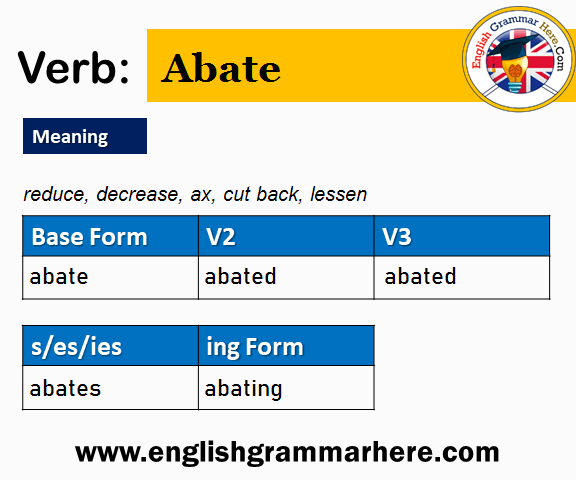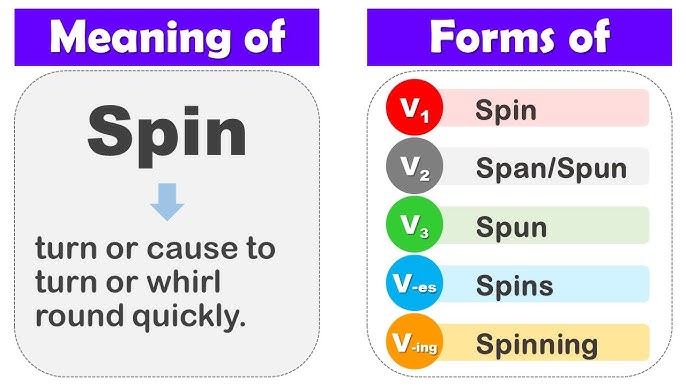Return Past And Past Participle Form V1 V2 V3 V4 V5 Form of Return
Are you struggling to understand the different forms of the verb “return”? You’re not alone.
Mastering verb forms can seem daunting, but it’s a crucial part of enhancing your English language skills. We’re diving deep into the past and past participle forms of “return. ” We’ll explore V1, V2, V3, V4, and V5 forms, making sure you have a clear grasp of how to use each one effectively.
Whether you’re a student, a professional, or someone simply eager to refine your English, this guide is tailored just for you. Stick around, because by the end of this post, you’ll feel more confident in your language abilities, and ready to tackle any verb form challenge that comes your way. Let’s turn confusion into clarity together!
Forms Of Return
The word “return”has different forms. These forms show how the word changes. The base formis “return”. The past simpleform is “returned”. The past participleform is also “returned”. This form is used in perfect tenses. The present participleor gerundis “returning”. This form ends with -ing.
| Verb Form | Example |
|---|---|
| V1 (Base) | return |
| V2 (Past Simple) | returned |
| V3 (Past Participle) | returned |
| V4 (Present Participle) | returning |
| V5 (Simple Present) | returns |
Use these forms in sentences. Each form helps express time. It shows when something happens. Verbs change based on tenses.

Credit: englishgrammarhere.com
Past And Past Participle
The past form of return is returned. We use it to talk about things that happened before now. For example, “She returned home yesterday.” This tells us the action was completed in the past.
The past participle of return is also returned. It helps us talk about actions that are completed. We often use it with helping verbs like has or have. Example: “He has returned the book.” This shows the action is complete.
| Base Form (V1) | Past Form (V2) | Past Participle (V3) | Present Participle (V4) | 3rd Person Singular (V5) |
|---|---|---|---|---|
| return | returned | returned | returning | returns |
Usage In Sentences
The word returnchanges in different ways. In the present, we say return. In the past, it becomes returned. As a past participle, it stays returned. When used in continuous tense, we say returning. The verb can also appear as returnsin present tense for singular subjects.
He returnshome every day. Yesterday, she returnedfrom school. They have returnedthe books already. The cat is returningto its bed now. The dog returnsthe ball quickly.
Using the correct form is easy. Each form fits a different time. Practice makes it simple. Try using these forms in daily speech. It helps to learn faster. Mistakes are okay while learning. Keep trying to improve each day.

Credit: www.pinterest.com
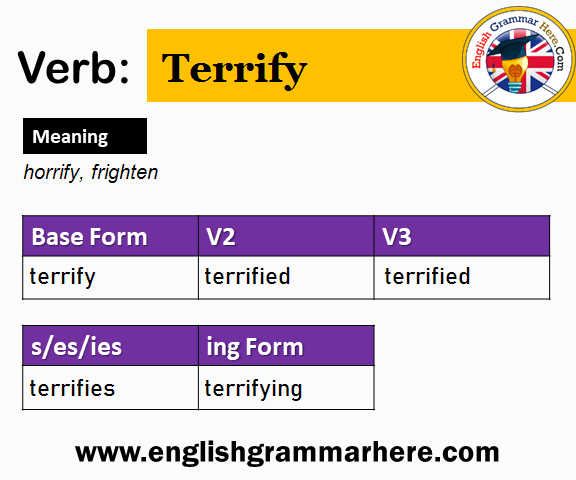
Credit: englishgrammarhere.com
Conclusion
Understanding the verb forms of “return” is essential. These forms help in writing and speaking accurately. Remember, V1 is “return,” V2 is “returned,” and V3 is also “returned. ” V4 is “returning,” and V5 is “returns. ” Practice these forms to improve your English skills.
Simple exercises can make a big difference. Keep referring to this guide for clarity. Use it to enhance your communication. Learning these forms is a step toward better English. Stay consistent in your practice. Your efforts will show in your improved language skills.
